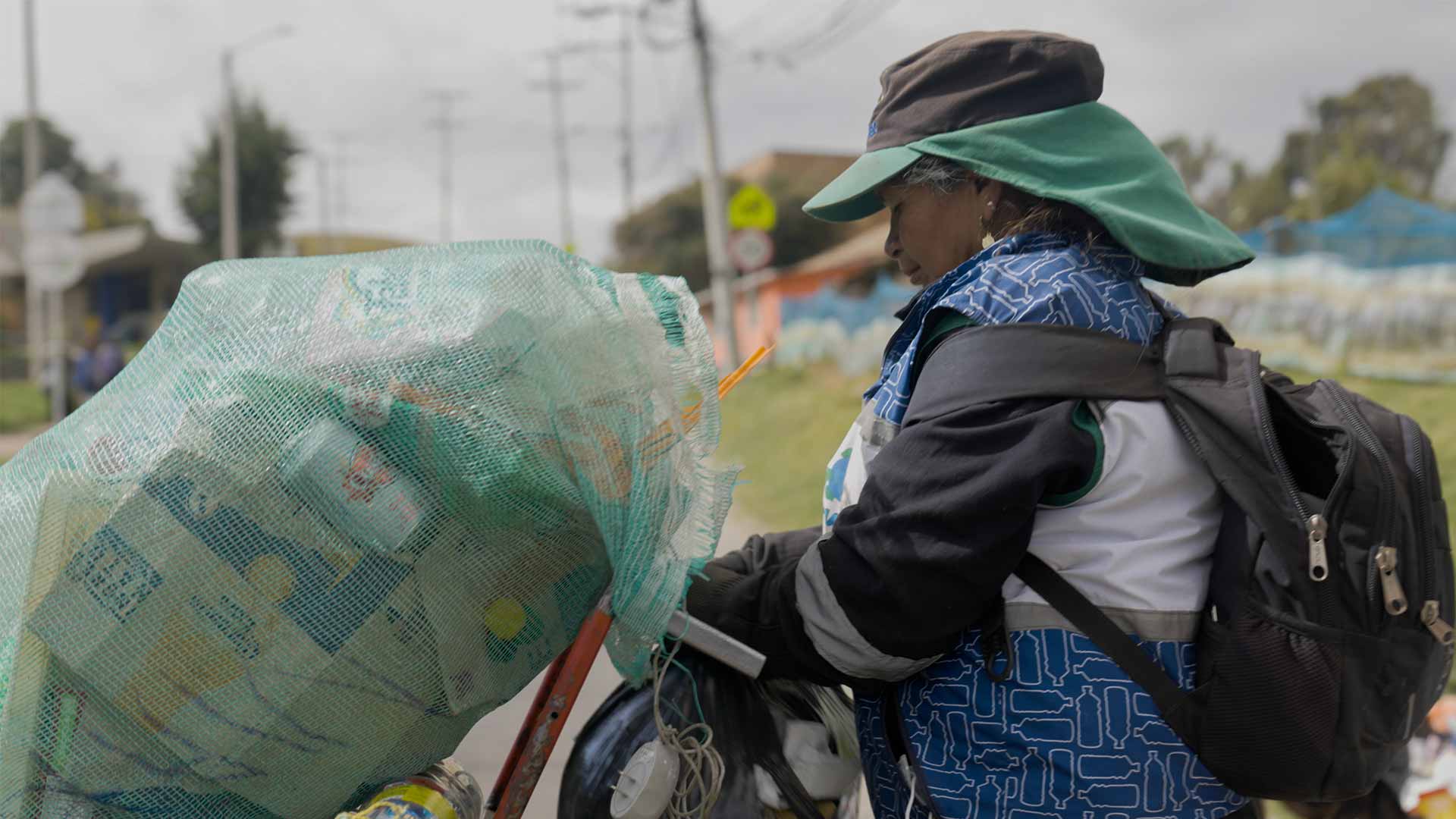
After a stop in the Dominican Republic, Plastic Odyssey changed its route and stopped in Colombia, one of the most advanced countries in the world in terms of plastics processing. This was an opportunity to meet recycling pioneers who have created unique systems and projects that are now models for developing countries to follow.
The concept of “recicladores” in Colombia
In Colombia, thousands of people roam the streets every day with their carts, collecting recyclable waste to sell to recycling companies. Some collect it directly from the streets among the garbage, and others collect it from landfills. These people are called “recicladores”. Thanks to them, it is possible to recover and transform so much plastic in Colombia. The profession of recycler has always existed, but has not always been recognized for its true value.
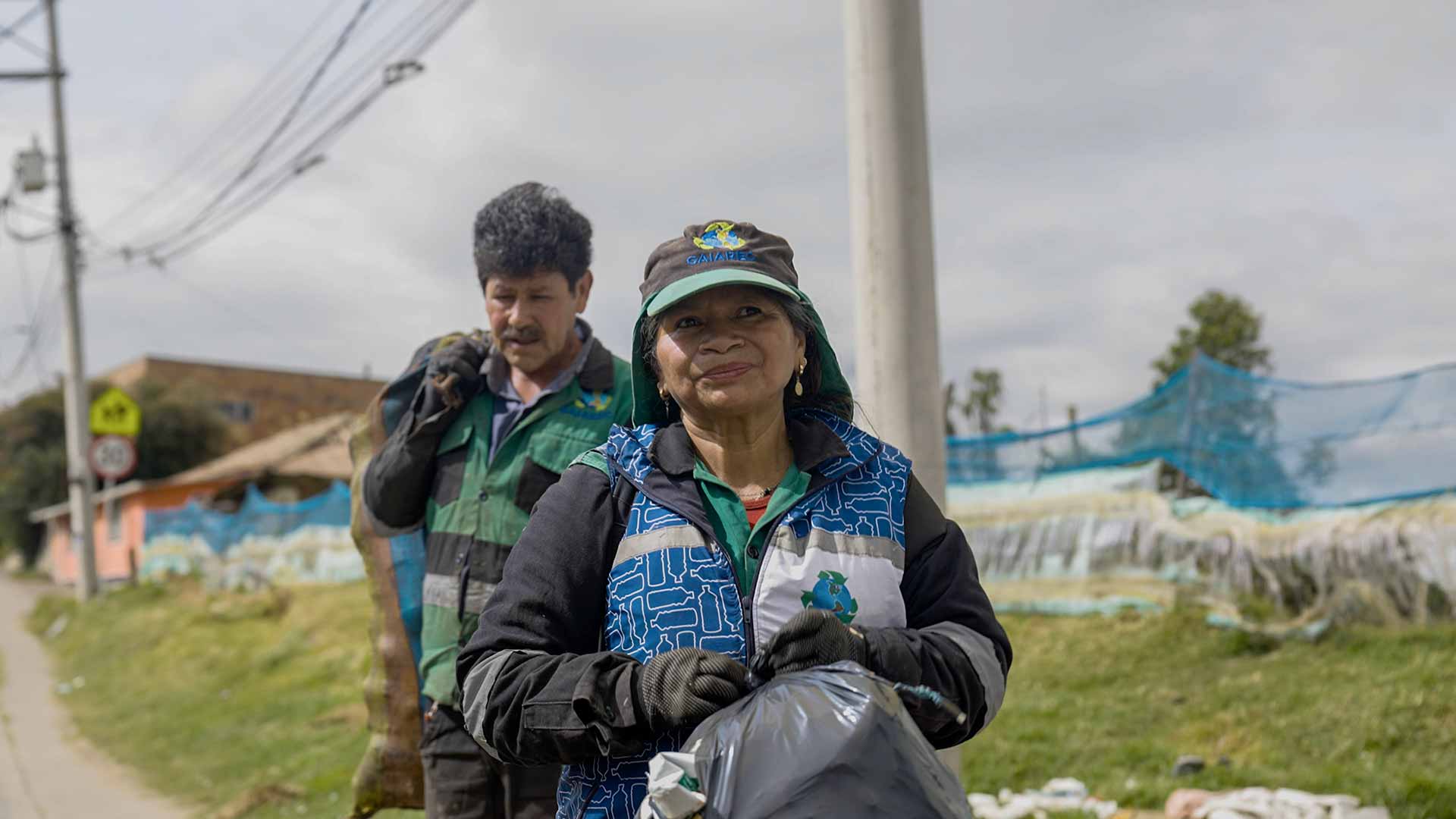
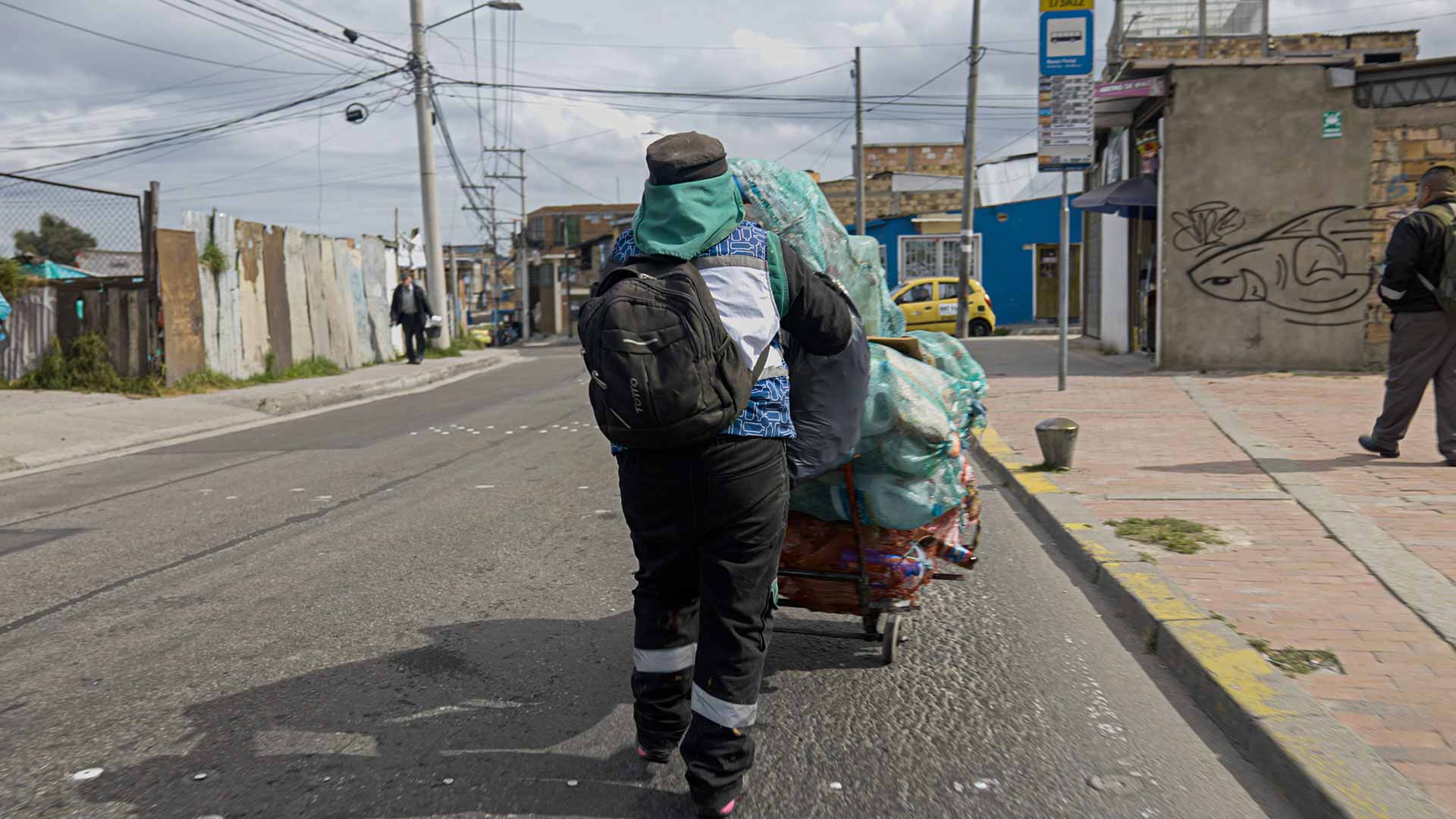
“Without the work of the collectors, there would be no recycling. These men and women, who work in difficult conditions, play a crucial role in the recycling ecosystem. That is why we are fighting tirelessly for their (our) work to be recognized!” Underlines Silvio Ruiz, director of the organization GAIAREC, which brings together all the actors of recycling in Bogotá, from the collection to the transformation of plastics.
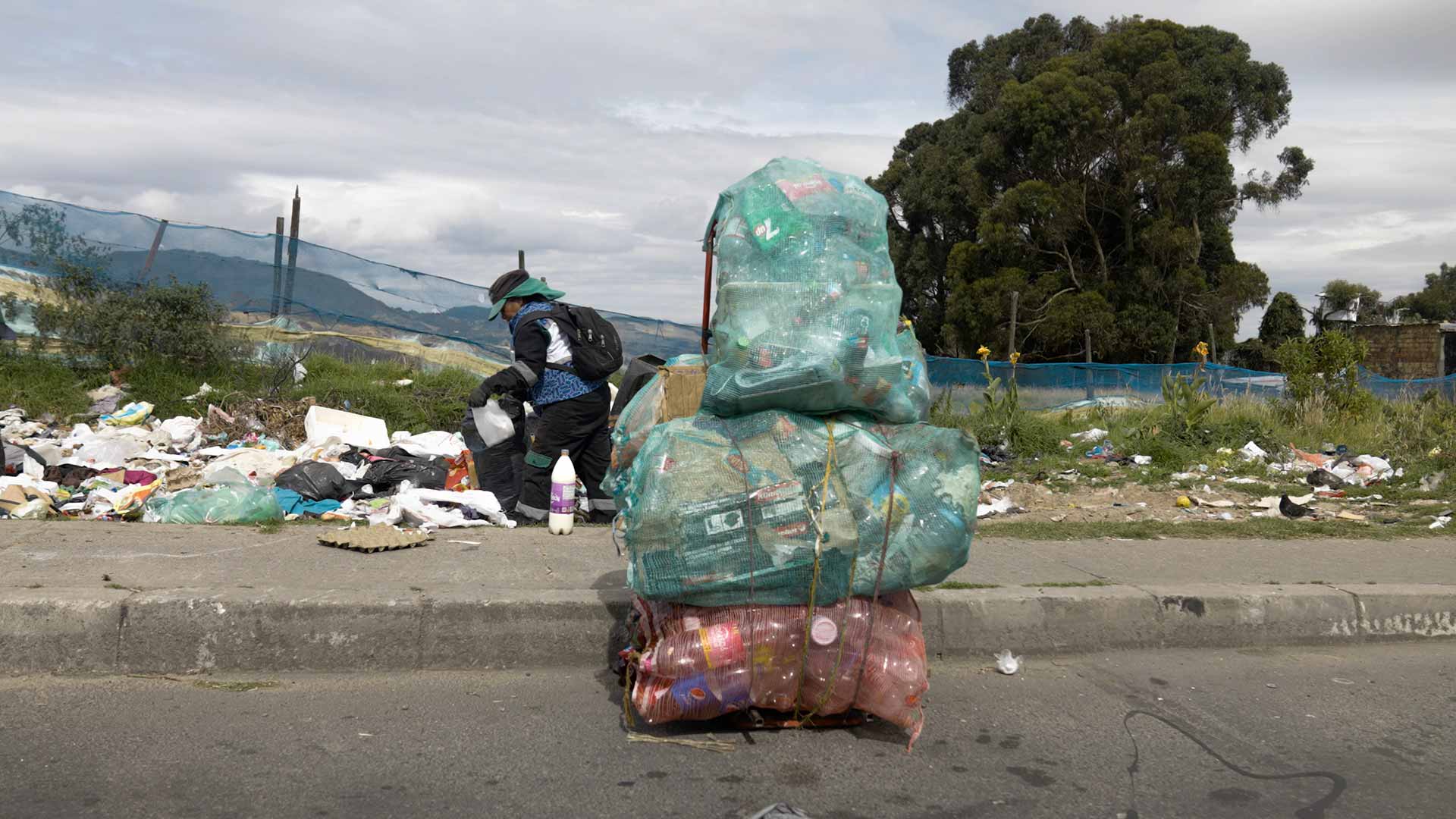
Silvio Ruiz, leader and spokesman for recyclers’ rights
Silvio was born in a poor neighborhood of Bogotá, Colombia. At the age of 12, he didn’t have enough money to buy shoes or breakfast to go to school. Determined to escape extreme poverty, he dropped out of school and began collecting plastic from open garbage dumps to earn some money. From a young age, Silvio understood the importance of recycling in Colombian society and became involved in a social struggle to improve the conditions of recyclers in his hometown, as well as in the country.
At the age of 18, this ambitious young man was invited to Dubai for an international conference on recycling, an extraordinary experience for someone who had never left his hometown. After that, he continued his fight to defend the rights of informal workers in Colombia. Silvio actively participated in the implementation of a tax to increase the wages of recyclers. Under his leadership, more than 450 formal recyclers in Bogotá are now benefiting from improved incomes.
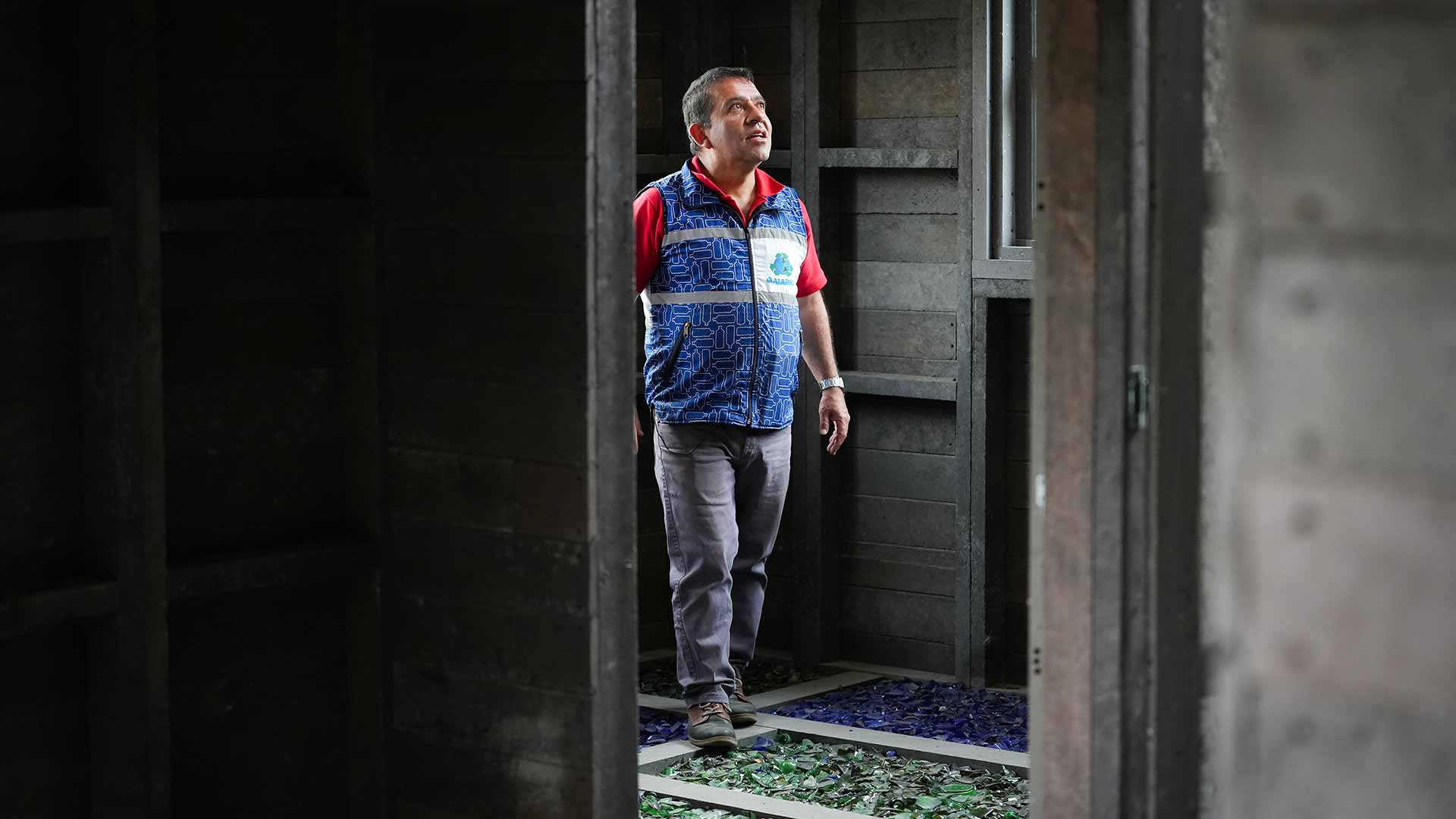
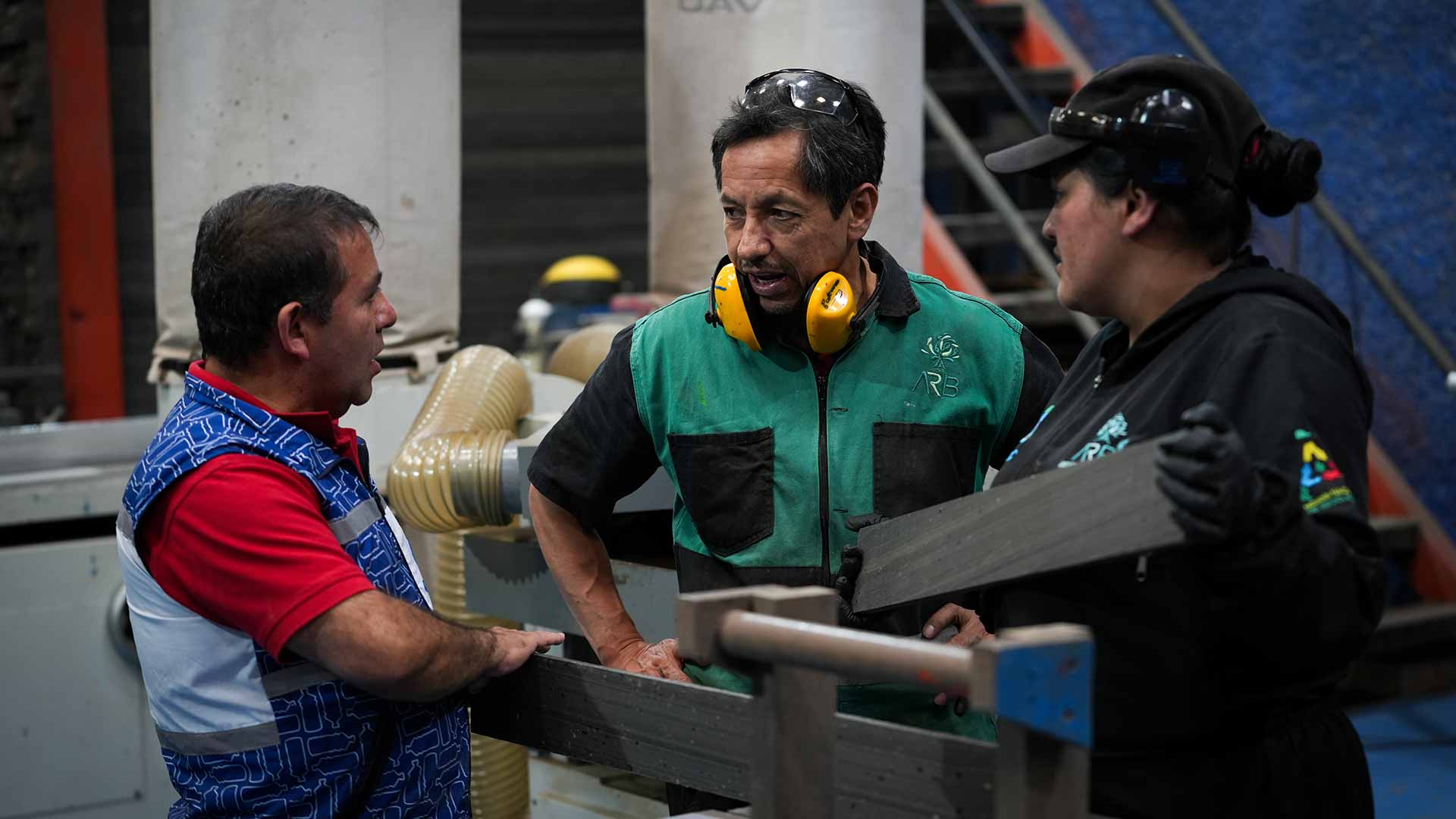
Colombia is the first country in the world to levy a tax on its citizens for sanitation centers, part of which goes to recyclers in recognition of their essential work. Since then, their income has increased by 40% and their working conditions have improved. Recyclers in Bogotá represent more than 25,000 families and 60,000 throughout Colombia.
From collection to construction of recycled plastic houses
Thanks to a well-organized network, the value chain of the recycling process in Bogota results in finished products such as profiles and bricks. These products make it possible to build houses made entirely of recycled plastic. Silvio is a great example, having built his own two-story house from recycled plastic. His long-term goal is to provide decent housing for recyclers, as financial insecurity is still too prevalent in the country. To discover the story of Silvio Ruiz and recycled plastic houses, watch the latest episode of the Éclaireurs web series.

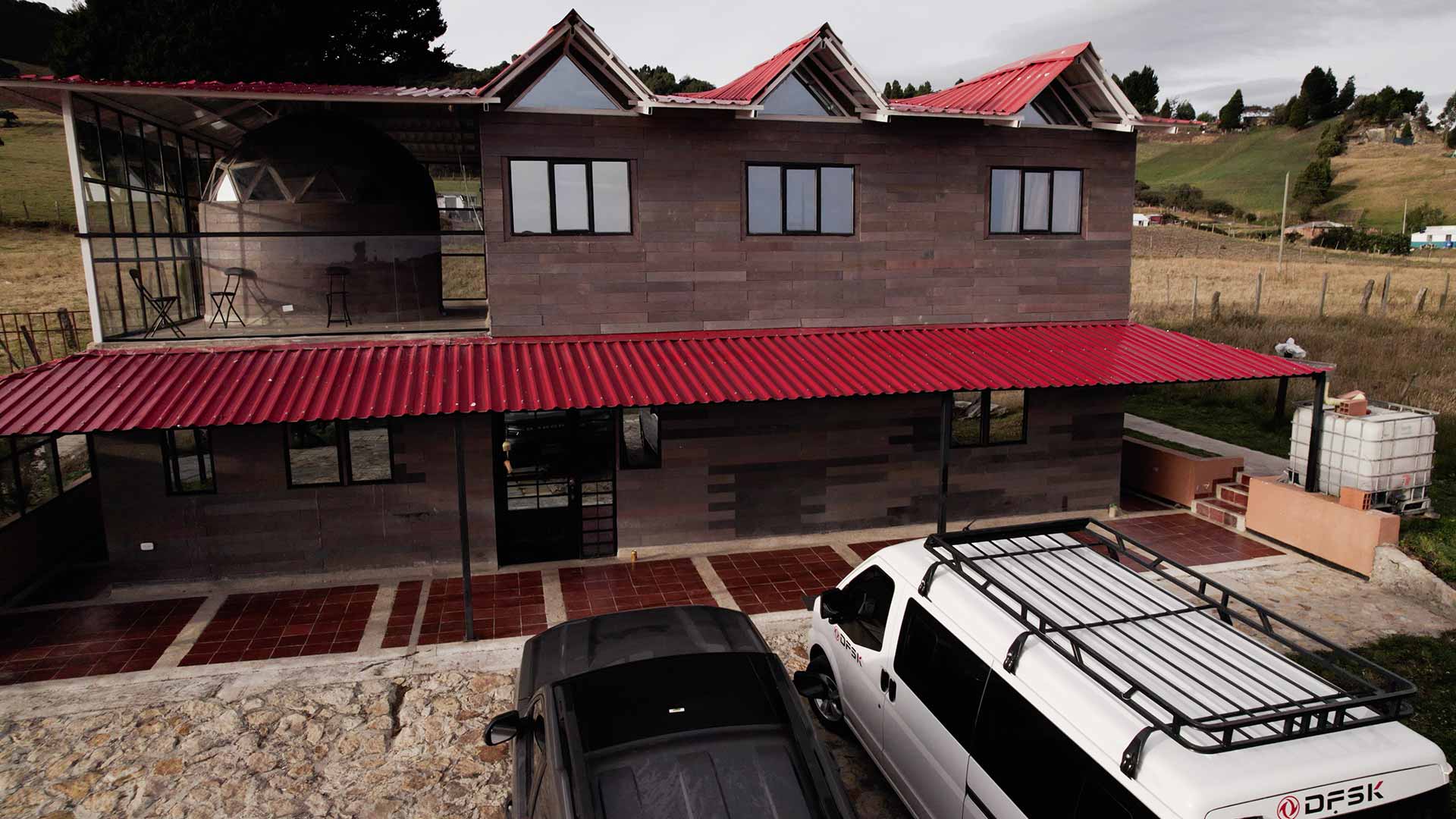
The model replicated in Cartagena
In the city of Cartagena, Candida is following in Silvio’s footsteps as the representative of the city’s association of recyclers and recycling companies. Her goal is to formalize the profession of recycler, which is still 80% informal in the city. During the laboratory aboard Plastic Odyssey, the two leaders had the opportunity to exchange ideas and inspire each other. Candida hopes to continue improving conditions for recyclers by expanding and formalizing the network. She also wants to create more processing plants to increase the autonomy of the recyclers, knowing that only 4 of the current 11 companies have the necessary equipment to recycle.
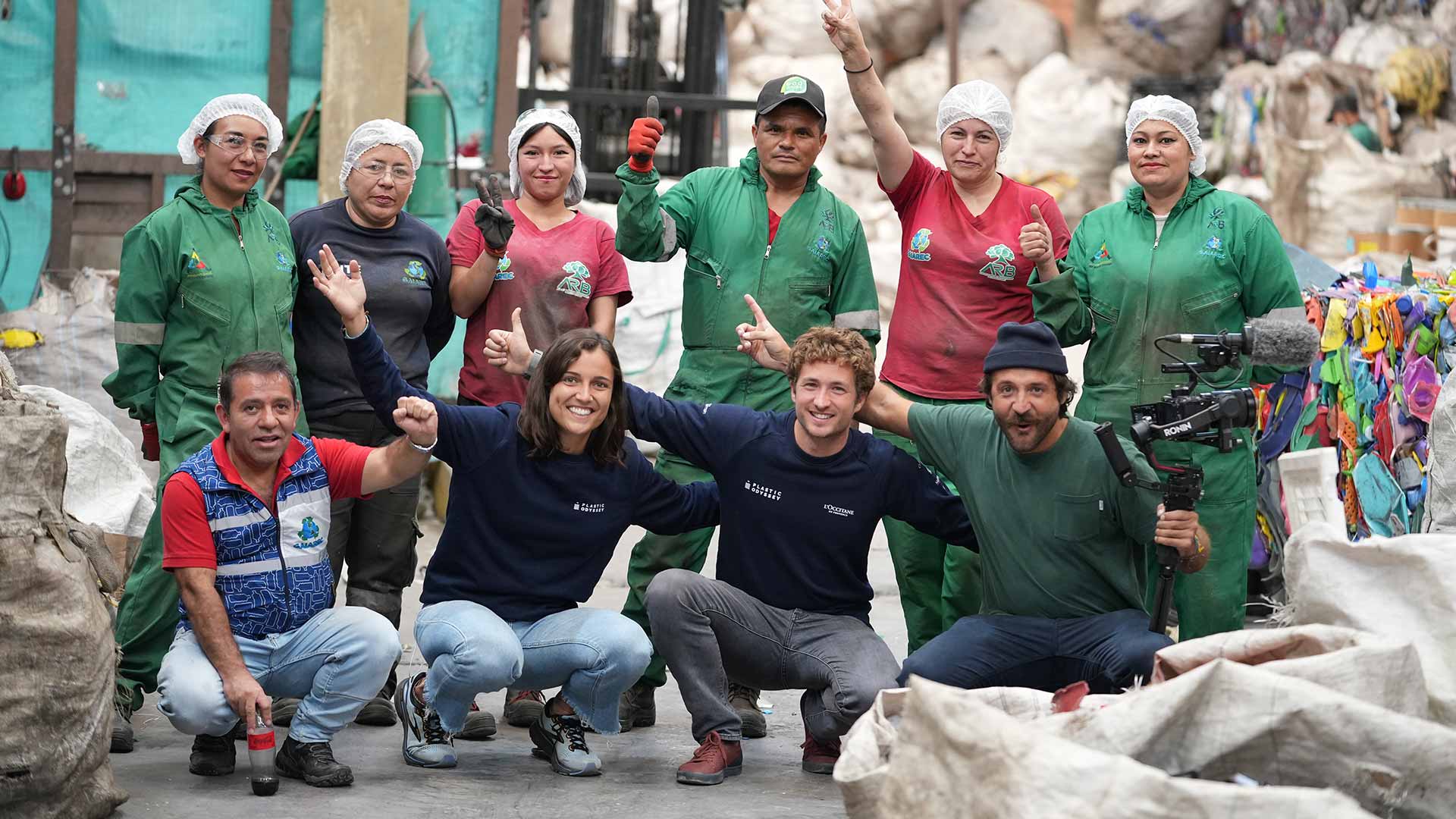
The story of the recicladores in Colombia is unique in the world, and this stopover inspired the Plastic Odyssey team. Silvio’s collective model proves that it is possible to implement a sustainable solution and transform a vulnerable sector into a structured organization.
“In a world where plastic is now ubiquitous, recyclers play a crucial role in preventing the total destruction of our beautiful planet. We must not forget this!” Silvio finishes, his voice full of emotion.
